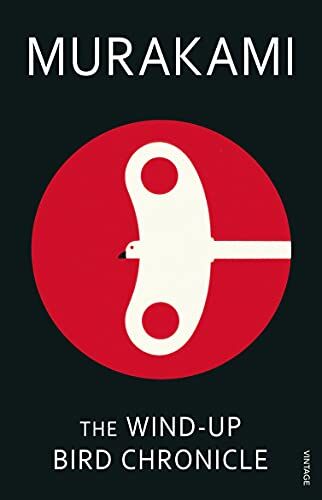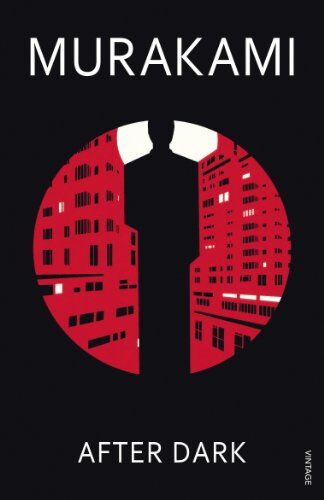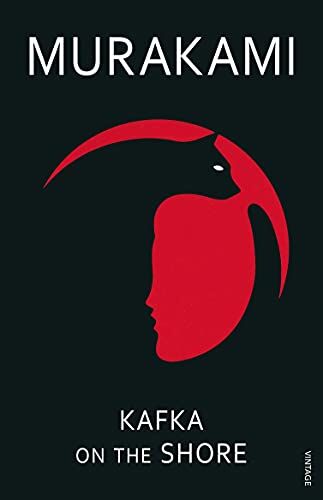Journalist Natasha Khullar Relph delves into the life of the beloved Japanese author and how his work captures the abiding loneliness of an entire generation.

It’s 1978. Haruki Murakami, a 29-year-old jazz club owner in Tokyo, is at Jingu Stadium watching a baseball game between the Yakult Swallows and the Hiroshima Carp. Dave Hilton hits a double and in that moment, Murakami has a realization. A thought that comes out of nowhere:
“I can write a novel.”
On the way back home, Murakami buys papers and a pen and that night, he starts writing his first novel.
It is an unusual beginning to an unusual writing dream, but when it comes to Murakami, the bizarre is normal and the normal is bizarre.
Over the last forty years, Murakami’s work has been published in more than 50 languages and sold millions of copies. He is the only author in translation who can pack midnight release parties and continues to remain a favorite to win the Nobel Prize for Literature. Murakami was named of the 100 most influential people of 2015 by TIME magazine, and is unarguably the most well-known author from Japan.
In this profile, we uncover the risks, the discipline, and the focus that led Murakami to becoming the author we know him to be today.
On deciding to write a novel:

Of the moment the flash of inspiration to write a novel came to him, Murakami writes, “I didn’t have any ambition to be a “novelist.” I just had the strong desire to write a novel. I had no concrete image of what I wanted to write about—just the conviction that I could come up with something that I’d find convincing. When I thought about sitting down at my desk at home and starting to write, I realized that I didn’t even own a decent fountain pen. So I went to the Kinokuniya store in Shinjuku and bought a sheaf of manuscript paper and a five-dollar Sailor pen. A small capital investment on my part.”
That two-hundred-page handwritten manuscript went on to win a literary award and got his career started.
On starting where you are:
The desire burned strong, but in practical terms Murakami had no training, no credentials, and no prior experience of writing anything. He decided to write anyway.
“I couldn’t write anything that measured up to Dostoyevsky or Balzac, of course, but I told myself it didn’t matter. I didn’t have to become a literary giant. Still, I had no idea how to go about writing a novel or what to write about. I had absolutely no experience, after all, and no ready-made style at my disposal. I didn’t know anyone who could teach me how to do it, or even friends I could talk with about literature. My only thought at that point was how wonderful it would be if I could write like playing an instrument.”
On sustaining focus long-term:
Murakami’s first two novels were written in the early hours of the morning. By the time he’d closed the bar, finished the accounts, checked the inventory, and scheduled the staff, it would be three in the morning. That’s when he’d start writing.
“I found myself wanting to write a more substantial kind of novel,” he writes. “With the first two, Hear the Wind and Pinball, 1973, I basically enjoyed the process of writing, but there were parts I wasn’t too pleased with. With these first two novels I was only able to write in spurts, snatching bits of time here and there—a half hour here, an hour there—and become I was always tired and felt like I was competing against the clocks as I wrote, I was never able to concentrate. With this scattered approach I was able to write some interesting, fresh things, but the result was far from a complex or profound novel.”
On going full-time:
Against everyone’s advice, Murakami and his wife sold the bar and moved to Narashino, a small town in Chiba Prefecture. He writes:
Despite everyone’s objections, I sold the club and, a little embarrassedly, hung out my sign as a novelist. “I’d just like to be free to write for two years,” I explained to my wife. “If it doesn’t work out, we can always open up another bar somewhere. I’m still young and we’ll have time to start over.” This was in 1981 and we still had a considerable amount of debt, but I figured I’d just do my best and see what happened.
On having a routine:

This is around the time that Murakami’s writing routine—almost as famous as the man himself—started to solidify. He’d wake up at 4am to write for five or six hours producing around 10 pages a day, before heading off to run at least six miles, sometimes following that up with a swim.
“Once I began my life as a novelist, my wife and I decided that we’d go to bed soon after it got dark and wake up with the sun,” he writes. “To our minds, this was a more natural, respectable way to live. We also decided that from then on we’d try to see only the people we wanted to see, and, as much as possible, get by without seeing those we didn’t. We felt that, for a time at least, we could allow ourselves this modest indulgence.”
On being a story-watcher:
Murakami sees himself not as a storyteller who makes up worlds, but as a story-watcher, the vessel through which the stories flow. His job, he says, is to watch and report what comes through.
“For me, writing a novel is like having a dream,” he says. “Writing a novel lets me intentionally dream while I’m still awake. I can continue yesterday’s dream today, something you can’t normally do in everyday life. It’s also a way of descending deep into my own consciousness. So while I see it as dreamlike, it’s not fantasy. For me the dreamlike is very real.”
On creating unique characters and plots:

What makes Murakami’s stories unique is not just their magical realism, but how he captures the timeliness and loneliness of a singular narrative. In an interview he notes, “I’m always interested in people who’ve dropped out of society, those who’ve withdrawn from it. Most of the people in Kafka on the Shore are, in one sense or another, outside the mainstream.”
And then there are the worlds the characters inhabit. The other worlds. Where do they come from?
“When I’m really focused on writing, I get the feeling that I shift from this world to the other world, and then return to this world,” he told NPR. “Kind of like commuting. I go there, and come back. Going is important, but coming back is even more important. Since it’d be awful if you couldn’t return.”
On what it takes to be novelist long-term:
“After focus, the next most important thing for a novelist is, hands down, endurance. If you concentrate on writing three or four hours a day and feel tired after a week of this, you’re not going to be able to write a long work. What’s needed of the writer of fiction—at least one who hopes to write a novel—is the energy to focus every day for half a year, or a year, or two years…
“Fortunately, these two disciplines—focus and endurance—are different from talent, since they can be acquired and sharpened through training. You’ll naturally learn both concentration and endurance when you sit down every day at your desk and train yourself to focus on one point… And gradually you’ll expand the limits of what you’re able to do. Almost imperceptibly you’ll make the bar rise. This involves the same process as jogging every day to strengthen your muscles and develop a runner’s physique. Add a stimulus and keep it up. And repeat. Patience is a must in this process, but I guarantee results will come.”
On writing in a time of chaos:
Murakami believes his work becomes even more relevant during times of political chaos. “I was so popular in the 1990s in Russia, at the time they were changing from the Soviet Union – there was big confusion, and people in confusion like my books,” he told the Guardian in an interview. “In Germany, when the Berlin Wall fell down, there was confusion – and people liked my books.”
He notes: “When I was in my teens, in the 1960s, that was the age of idealism. We believed the world would get better if we tried. People today don’t believe that, and I think that’s very sad. People say my books are weird, but beyond the weirdness, there should be a better world. It’s just that we have to experience the weirdness before we get to the better world. That’s the fundamental structure of my stories: you have to go through the darkness, through the underground, before you get to the light.”
Sign up for The Wordling
Writing trends, advice, and industry news. Delivered with a cheeky twist to your Inbox weekly, for free.